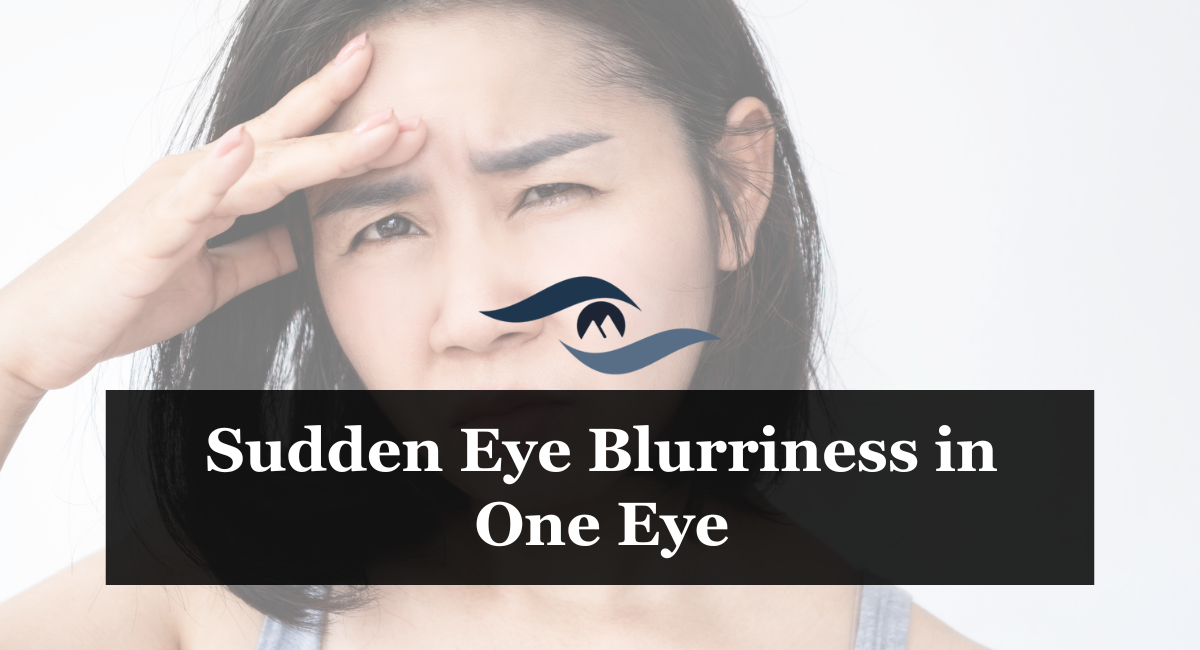Do you have blurred vision in only one eye? This can indicate a significant eye issue.
Although hazy vision is commonly linked to the need for eyeglasses or a new optical prescription, blurry vision in one eye can indicate a more severe condition that needs urgent attention.
Unclear eyesight that occurs suddenly or exclusively in one eye may indicate a medical emergency and should be promptly assessed by an eye doctor or another medical specialist.
Here are six situations that might lead to blurred vision in one eye:
1. Cerebrovascular accident
Unclear eyesight in one or both eyes can happen when a stroke impacts the visual regions of the brain. If you have blurry vision coupled with any of the symptoms listed below, it is important to promptly seek medical attention:
- Intense head pain
- Confusion
- Challenges in verbal communication or comprehending spoken language
- Unevenness or difficulty in walking
- Loss of sensation or a prickling sensation in limbs, particularly on one side
2. Detachment of the retina
Retinal detachment is a condition in which the retina is displaced from its usual position on the back wall of the eye, and it requires immediate attention.
This potentially serious disorder typically leads to a sudden appearance of unclear eyesight, accompanied by:
- Flashes of illumination or specks that drift across your eyesight
- Reduced side vision
- Presence of a shadow or veil in your range of vision
3.Brain neoplasm
Brain tumors can exert pressure on the visual processing regions of the brain and result in blurred vision, along with other visual alterations.
Additional indications of a brain tumor include:
- Chronic head pain
- Uncertainty or trouble focusing
- Amnesia
- Difficulty communicating verbally
- Reduced strength on one side of the body Difficulties with balance and coordination
4. Glaucoma with closed angles
Angle-closure glaucoma is an eye condition that happens when the fluid in the eye cannot drain correctly, causing a sudden increase in pressure inside the eye.
The increased pressure applies force on the optic nerve, resulting in lasting harm and loss of vision, typically in one eye.
Additional indications of closed-angle glaucoma include:
- Head pain
- Intense eye discomfort
- Feeling sick and throwing up
- Observing circles of light around light sources
5. Macular degeneration with much moisture
Macular degeneration (AMD) is an eye condition that can cause vision loss. It affects the macula, which is the middle part of the retina. The macula is crucial for central vision and seeing tiny details.
There are two types of macular degeneration: dry and wet.
In the moist state, one eye may abruptly undergo a bleed or leakage of fluid, leading to an acute loss of vision in that eye — this is an eye emergency.
One of the initial indications of AMD is unclear eyesight in either one or both eyes.
Additional indications of AMD include:
- Presence of obscured areas in your center vision
- Distorted eyesight or other visual abnormalities in your central vision
- Challenges with reading and operating a vehicle
- Issue with face identification
- Difficulty seeing little details
6. Retinal damage caused by diabetes
Diabetic retinopathy is a significant eye disorder that impacts those with diabetes. It occurs when blood sugar levels stay high for extended durations, causing damage to the small blood vessels in many parts of the body, including the retina.
When the blood vessels in the retina are harmed, they start to release fluid, which leads to enlargement of the retina and a loss of sharp eyesight.
Additional indications of diabetic retinopathy include:
- Blurry vision in both eyes
- Observing specks in your visual field
- Growing areas of darkness in your field of sight
- Difficulty seeing at night
Conclusion
Locate a Vision Therapy Eye Doctor in Your Area City, Suburb, or Address Search nearby
5 less pressing reasons for experiencing hazy vision in one eye:
Although the following causes typically do not necessitate an urgent visit to the eye doctor, treatment is nevertheless required to avoid any problems.
